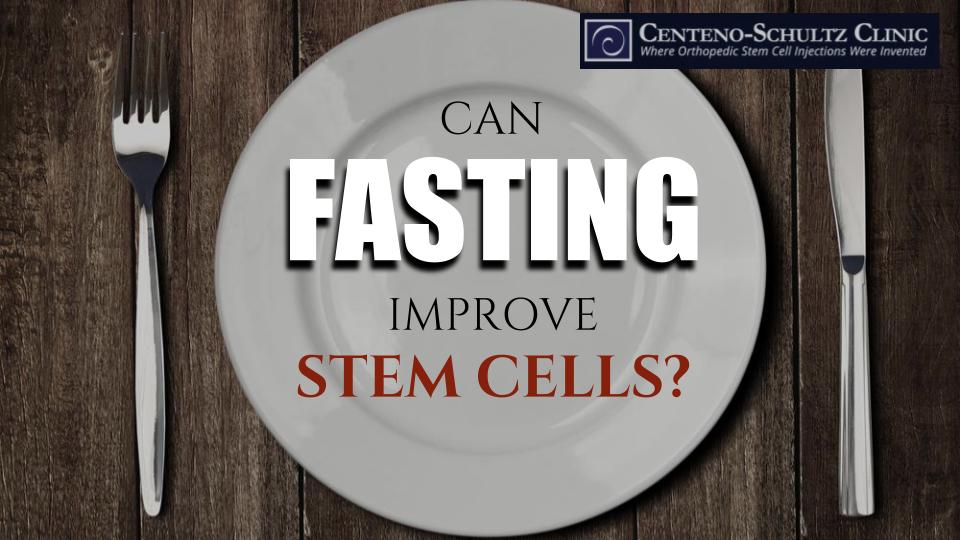There are many things you can do to help improve your stem cells, your body’s natural repairmen. Cutting the sugar, exercising, avoiding certain medications and steroids for starters. In fact, we provide a supplement to patients and right here on our blog that covers some of the primary things you can do to make sure your stem cells are healthy prior to a stem cell procedure. Now, it seems there may be one more thing you can do to give your stem cells a nice boost: fasting.
Fasting May Improve Your Stem Cells Regardless of Age
Stem cells that reside in the intestinal tract were the primary focus in a recent study on fasting. Researchers found that after a 24-hour fast, stem cell regeneration in the intestines of mice . They discovered that the ability of intestinal stem cells, in mouse subjects, to regenerate doubled after just 24 hours of fasting. How did this happen? The fasting mice became fat burners instead of carb burners. In other words, while fasting they began metabolizing fatty acids instead of glucose, or blood sugar, for their energy source. This shift stimulated the regeneration in the intestinal stem cells.
The study also found that while intestinal stem cell numbers and function are reduced with aging, fasting boosted the regenerative potential of the stem cells of both young and old mice. So let’s take a minute to talk about stem cells and aging.
Stem Cells and Aging
As we age, a structure inside the cell called the endoplasmic reticulum can lose oxidative power and its ability to communicate outside the cell can be jeopardized. When this occurs, homeostasis, or balance, within the cells can be disrupted. Secretion of proteins is affected, and can result in the misfolding of the proteins. This can result in diseases such as Alzheimer’s and Parkinson’s.
Another cellular structure called mitochondria (the cell “batteries”) can also be affected as we age. When our cell batteries start to die, our stem cells can recharge them by replacing the “batteries.” They do this by transferring mitochondria, the power pack, to the dying cell. As we age, however, our stem cells, too, can lose function, but this doesn’t mean that older patients have poorer stem cell treatment outcomes. Watch Dr. Centeno’s video below to learn more about this.
More Potential Benefits to Fasting
We’ve also seen that a fasting-mimicking diet (FMD), by reprogramming pancreatic cells, may actually improve or restore the secretion of insulin in diabetes. The benefits of fasting aren’t just appreciated at the cellular level. There’s a hormonal benefit as well. The hormone leptin is critical as it triggers us when we are full, telling us we need to stop eating. The problem is, overeating stimulates excess leptin secretion as our bodies attempt to turn the signal up higher and higher so we’ll stop eating. So the more we ignore the signal and keep eating, the more leptin we produce. Unfortunately, leptin is an inflammatory hormone, and too much leptin in our system has been shown to increase arthritis risk. Fasting, even for as little as one day, actually decreases leptin levels, and, therefore, potentially arthritis risk as well.
So in addition to our top 8 ways to keep your stem cells healthy, you can add a fasting or fasting-mimicking program to your normal healthy diet. Keep in mind that ways to improve your stem cells are also very important if you are planning a stem cell treatment, and working in a 24-hour fast prior to your treatment may give those stem cells a nice boost.
